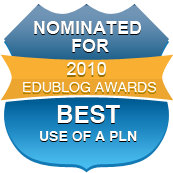
1. You must have registered for Foliotek by today July 16, 2013 unless you are exempt. The following are exempt from using Foliotek: a) those seeking only recertification or license renewal; 2) students who are not seeking candidacy status; students who are not Education majors. Foliotek costs $ 35 for one year. NOTE: Several students who are in their first semester at USA report they are not being charged for Foliotek. If this happens to you - just smile. At least for the time being.
To register and pay for Foliotek follow these instructions:
a. When using Foliotek use Chrome or Explorer browsers ONLY.
b.Go to the USA Online Login page.
b. Login. Your User ID is your J number. Your password is the last 4 digits of your social security number.
c. Click on Sakai. Then click on a class which requires the use of Foliotek. Then click Foliotek in the left column. If you have not established a Foliotek account, do so. You will have to pay by credit card. After all information has been entered you will have to Accept the Foliotek rules, etc.
2. Once you have registered and paid for Foliotek and Accepted the Foliotek rules, etc. you will be able to post to Foliotek.
Think of Foliotek as a storage device in the sky where you will store evidence of your accomplishments in the College of Education. Every course you take in the COE has state established standards which you must meet. You must store the evidence used to determine whether or not you have met these standards in Foliotek where anyone desiring to can see that evidence. Your instructors will provide detailed instructions of what evidence must be submitted for what standards. You then place electronic copies of that evidence in Foliotek.
In EDM310 all of your evidence for all of the standards associated with EDM310 is in your blog and the EDM310 Class Blog. Therefore your blog and the Class Blog are what "go" into Foliotek. Since your evidence consists entirely of blogs we only have to provide Foliotek with links - links to your blog and the Class Blog. Therefore completing the Foliotek requirements for EDM310 is quick and easy.
You will need:
1. A list of the standards associated with EDM310. They are:
Literacy: Oral and Written Communications (3)(c) 1.(iii)
Literacy: Technology (3)(c) 4.(i)
Literacy: Technology (3)(c) 4.(ii)
Literacy: Technology (3)(c) 4.(vi)
Professionalism: Ethics (5)(c) 5.(ii)
Professionalism: Ethics (5)(c) 5.(iv)
For Elementary Majors ONLY: General Special Education: 290-3-3-.34 (2)(g)2.(iii)
Note that the standards are grouped into Literacy, Professionalism and Teaching K-6(for General Special Education). (There are other groups.) Also note that there is one small letter i (or two or three of them) at the end of the numbering system. These are VERY IMPORTANT. Be sure you pay attention to them!
2. You will need the URL to your blog and the URL for the Class Blog ( http://edm310.blogspot.com )
3. Then follow the instructions in Foliotek Instructions.
4. After you have completed Foliotek, your entries must be checked in person by one of the EDM310 staff members. This is an ABSOLUTE requirement and it must be done in class before 4 pm Thursday July 18, 2013. If one of us does not sign off on your Foliotek entries in person you will get an I in the course. And if you do not complete Foliotek (which is a GREAT hassle for you and an even greater hassle for Dr. Strange) no later than Friday September 27, 2013 your I will become an F no matter what you would have gotten in the course.














